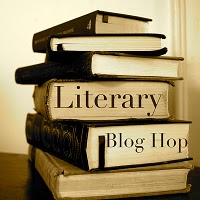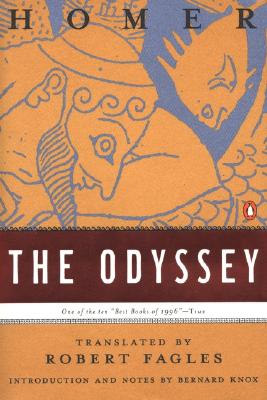
The Literary Blog Hop is hosted by The Blue Bookcase and “is open to blogs that primarily feature book reviews of literary fiction,classic literature, and general literary discussion”.
This week’s topic is:
What one literary work must you read before you die?
I’m not a fan of the “I must do/read/see/travel to xyz before I die” quest. Because, somehow, I think the accomplished whatever must impact the state of death in some way. I’m not religious, I don’t believe there is an afterlife. Like the author Richard Dawkins, I think this good, bad, ugly right here and now is the greatest show going. So when I die, I cease to be. My consciousness, this me, just disappears. And having read and enjoyed To the Lighthouse won’t make one bit of difference to the dead me. There is a real possibility that I’m wrong and there is an afterlife :). That there is a heaven and a hell. If I find myself in Heaven, having read and enjoyed Waiting for Godot won’t make a difference to my new state of bliss either. If, quite unfortunately, I’m sent to Hell, then being able to recite Donne’s poetry or my favorite speech from Richard II,
(Let’s talk of graves, of worms, and epitaphs;
Make dust our paper and with rainy eyes
Write sorrow on the bosom of the earth,
Let’s choose executors and talk of wills:
And yet not so, for what can we bequeath
Save our deposed bodies to the ground…)
will not bring any comfort; Hell being the ultimate destination in suffering. Readers, do you see the problem I have with the question? I don’t find death interesting at all. Living is the thing, even when we are dying. So let me rephrase the question.
What one literary work must you read to continue to live, live more, live better?
Living more and better for the reading me equates to becoming a better reader. The book may, or may not, turn out to be one of my favorite books when I’m done reading it. It must be a book that is essential to my development as a reader. A book that enables me to appreciate and enjoy other books. If I think of the question in this manner then the answer is obvious.
The literary work is The Odyssey. It is an essential book. Probably, the most essential book. It’s prequel, The Iliad, is a close second. Lately, I feel hounded by The Odyssey. Its footprints appear all over some of the books that I’ve been reading and those that I want to read. The time has come for me to read this book.

I’d been slowly reading it. Picking it up, reading a page or two and then putting it down. However reading this has inspired me to give it more due and read it like an actual novel. Looking forward to reading your review; that is, if you decide to write one.
LikeLike
It has been a while since I read The Odyssey, and I don’t remember loving it–of course, it was a required read–but nor did I find it a difficult book. On the one hand, I can appreciate it for its merit, but on the other I find myself constantly surprised at how often it shows up over and over again in other books. This last fact alone proves its worth. It may be time for me to re-read it to consider it properly.
LikeLike
The real idea of reading something before you die is to not miss the amazing experience that is that book. At least in my mind. I have lots I’m glad that I did not miss, including a dozen or so that I’ve just finally read after turning fifty!
Here’s my post: http://readerbuzz.blogspot.com/2011/03/book-you-must-read-before-you-die.html
LikeLike
I love the way you so eloquently answered the question and then turned it on its head. I’ve read the Illiad and thoroughly enjoyed it, but never read the Odyssey. I think I need to read it. Thanks
LikeLike
I did an entire unit at university where all the texts were basically in the shadow of The Odyssey (Moby Dick, The Tempest, stuff like that) so I think you’re definitely right- I’ve had the book for ages but somehow have never got round to reading it… I should probably get on that!
LikeLike
Great choice…and an excellent post. My best friend at school is actually a classicist, and she has shown me how the Greeks invented everything, especially in literature. I read The Odyssey and the Iliad in high school and feel compelled to reread now that I’ll have a greater understanding.
LikeLike
I know a lot of responders have found this prompt morbid, but I honestly don’t. I think of it more the way you phrased it- what do I want to read to make my lifetime most worthwhile? And I also don’t think the question assumes an afterlife. In fact, it makes more sense in an atheist’s context. Assuming I will cease to exist and therefore be unable to do fun things like reading, what do I most want to read before that unfortunate event, death, happens to me?
But yes, good choice with The Odyssey! I read it for classes in high school and college, but I think I would appreciate it even more if I read it a third time. In a related story, I’m hoping to read Margaret Atwood’s The Penelopiad soon. Maybe I’ll get ambitious and do the Iliad, the Odyssey, and the Penelopiad all in one go! That would be pretty cool.
Thanks for participating in the hop and for providing such a thoughtful and thought-provoking answer.
LikeLike
Interesting rephrasing of the question. I enjoyed reading your thoughts. Your book choice reminds of an interview of Ben Okri who was asked about the book he wished he had written and his answer was not far from yours. ‘The Odyssey’ by Homer,’ he said. But I doubt if I have any inkling at all for this book. I am often drawn away from that book although I do not why. I may have to give it a try some many, many years to come….lol!
LikeLike
I love your reasoning here, and I LOVE the Odyssey–one of the world’s great stories, for sure.
LikeLike
Beautifully written, Kinna. I have heard the Odyssey but not read it. It’s been suggested a few times for my bookgroup … and one day, I think we will do it. I have no idea though whether I would choose it if I had to choose one. Shakespeare and Tolstoy, though, have to be up there too. And then, for me, the poetry of Gerard Manley Hopkins would be hard to beat (even the religious ones, though like you I’m not religious).
LikeLike
I like the way you’ve rephrased the question: I am a slave to all lists and I like being able to justify that enslavement any way I can LOL.
I agree about The Odyssey 100%, and I think you’ve picked the right translation. I read it the first time (as poetry instead of excerpts rewritten for children) in the old Penguin edition and while I thought it was interesting I didn’t want to read it again straight away. Fagles, however, makes me want to forget about everything else and just read it again and again and again.
LikeLike
I had to read The Odyssey sophomore year in college. I liked it at the time, but I’m not sure that I fully appreciated it. I might have to read it again. As for the works of Shakespeare, I have to say that I’m woefully lacking. I’ve read three of his plays. To be fair, however, I’ve seen three times that many performed live which, I think, is very important for a dramatic work. Good choices!
LikeLike
I love the first part of your answer and your rephrasing makes so much sense.
I knw what you mean with The Odyssey; I ‘m just back from a conference on myth and subversion and it was discussed a lot. To that you might add The Bible, not for it being the word of God, but just as an intertext. However, I will contend mysef with reading extracts from both and reading subversions of them!
LikeLike
That is a great response. Why read something just to say you’ve done it before you die? What reward will there be if you have read it? Reading something to live better is a much better approach to take.
LikeLike
I so want to read The Iliad and The Odyssey!!! I was just debating buying them yesterday. Someone recently suggested reading them before Cold Mountain. And I think James Joyce’s Ulysses will also be better appreciated if I’ve read The Iliad.
(I love the way you rephrased the question. I am one who desperately wants to believe in an afterlife (and percentage-wise, more believes than not), and I still agree that we must keep our eyes on life. Well said.) 😉
LikeLike
I wish someone would make a list of the books to read prior to reading another book. I would certainly appreciate it. I plan on reading Derek Walcott’s epic poem Omeros this year. A fellow bibliophile warned me that it would be best if I read Homer (among others) before reading the poem. Thanks for your kind words.
LikeLike
There’s a book by Alberto Manguel, called “Homer’s the Illiad & the Odyssey. In this book the author demonstrates hoe these books have reverberated through the whole western canon ,through virgil, Horace, Dante, Racine, Joyce, Walcott etc.
Ps,Omeros is a great read & would be improved by the understanding of Homer. hope this helps.
LikeLike
great choice Kinna one most important books in the world ,with out a doubt ,all the best stu
LikeLike
Thank you, Stu.
LikeLike
great choice & a fantastic book, in total agreement on how its footprints appear on a lot of what you read, people say the same of shakespeare and yet Homers shadow is all over the bards work.
LikeLike
Thank you for saying that about Shakespeare and Homer. So true.
LikeLike
Kinna, I absolutely love your reasoning and I can totally agree with it. Except with your choice of The Odyssey. Well, I should say, I don’t know enough about it, but it doesn’t look attractive to me.
In my blog post, I challenge people to actually READ THAT BOOK that they find so essential (but still have no plans to read soon). Will you join in?
Have a nice weekend!
LikeLike
I think I will join you in the challenge. So therefore, I will read the The Odyssey before the end of this year. Is that good enough or is it too far?
LikeLike